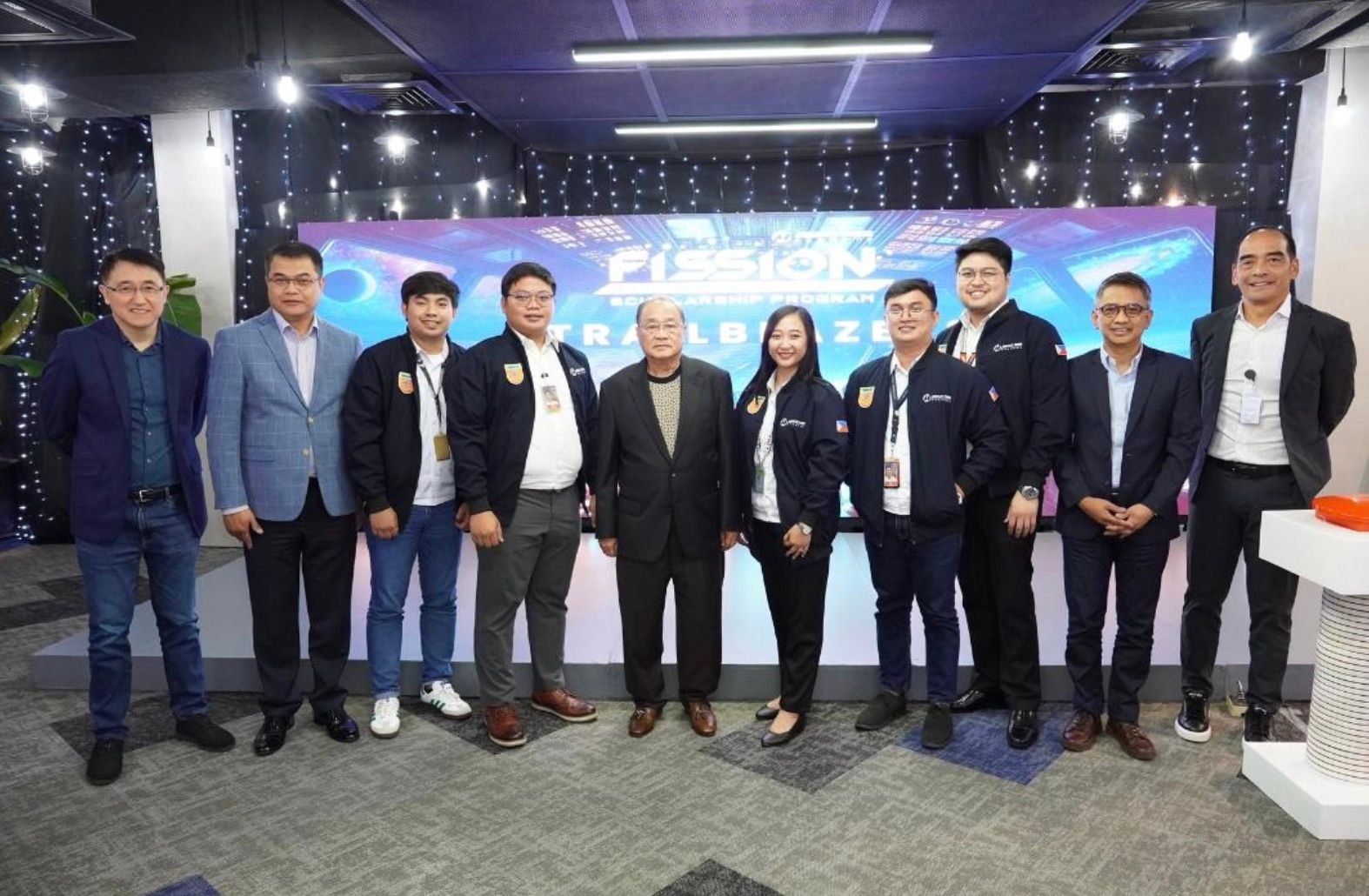At A Glance
- Meralco had chosen its homegrown engineers for the nucelar scholarship program – namely Amiela Nicodemus, Gener Atienza, Kenneth Tulagan, Mark Justin Salas, and Marc Laurence Ceria.
- A major condition prescribed under the FISSION program will be for the scholars to return to the country – that way, they can apply the knowledge and expertise they have acquired in the nuclear power development being envisioned for the Philippines.
Power utility giant Manila Electric Company (Meralco) takes a major stride on the reboot of the country’s aim for a deep well of expertise on nuclear power engineering and development, as it started sending its nuclear scholars and interns to preeminent partner-universities in the United States and China.
Helmed under its Filipino Scholars and Interns on Nuclear Engineering (FISSION) program, the initial batch of five scholars will be primarily pursuing two-year nuclear engineering program in their overseas studies.
“This initiative is part of Meralco’s proactive bid to advance the push for the integration of nuclear power in the country’s energy portfolio. The program also aims to support the government’s thrust to develop and achieve sustainable energy security,” the power firm noted.
Manifestly, it was a ‘charity begins at home’ precept that Meralco has employed in its initial deployment of scholars, as it had chosen its homegrown engineers for the program – namely Amiela Nicodemus, Gener Atienza, Kenneth Tulagan, Mark Justin Salas, and Marc Laurence Ceria.

The pilot batch of Meralco nuclear engineering scholars that will be sent to universities in the United States and China.
According to the power firm, Nicodemus and Atienza will be pursuing their studies at the
University of Illinois Urbana-Champaign in the US; while Tulagan, Salas, and Ceria will take the program at the Harbin Engineering University in China.
A major condition prescribed under the FISSION program will be for the scholars to return to the country – that way, they can apply the knowledge and expertise they have acquired in the nuclear power development being envisioned for the Philippines.
“Upon completion of the academic program, the FISSION scholars will be sent to nuclear technology companies for their internship. Once they return to the Philippines in 2028, they will be reintegrated into Meralco and be assigned to take on a role in its nuclear power generation unit,” the company expounded.
Meralco is one of the Philippine companies that is eyeing to take the lead in the nuclear renaissance pathway of the country – primarily in the targeted rollout of micro modular reactors (MMRs) with the support of prospective technology-partner American firm Ultra Safe Nuclear Corporation.
Meralco said it enforced “meticulous screening process” in the selection of its scholars – and that was done by a selection committee comprising of energy industry experts and academic professionals, including Dr. Ike Dimayuga from the Atomic Energy of Canada Ltd. and Dr. Aura Matias, former dean of the University of the Philippines College of Engineering.
FISSION is part of the institutionalized program being advanced by the Meralco Power Academy (MPA), which serves as the energy education unit of the power utility company.
As emphasized by Meralco Executive Vice President and Chief Operating Officer Ronnie L. Aperocho, "FISSION is a major step in accelerating the education and training of technical and regulatory talents in the highly specialized field of nuclear engineering,” with him stressing that “this manifests Meralco’s steadfast commitment in continuously developing the workforce in the energy sector.”
For the FISSION-underpinned scholarship program, Meralco conveyed that it partnered with top universities offshore – primarily those that are offering graduate programs on nuclear engineering.
It is through that program, the company qualified, that scholars can gain “access to nuclear energy laboratories and participate in ongoing research on small and micro modular reactors.”